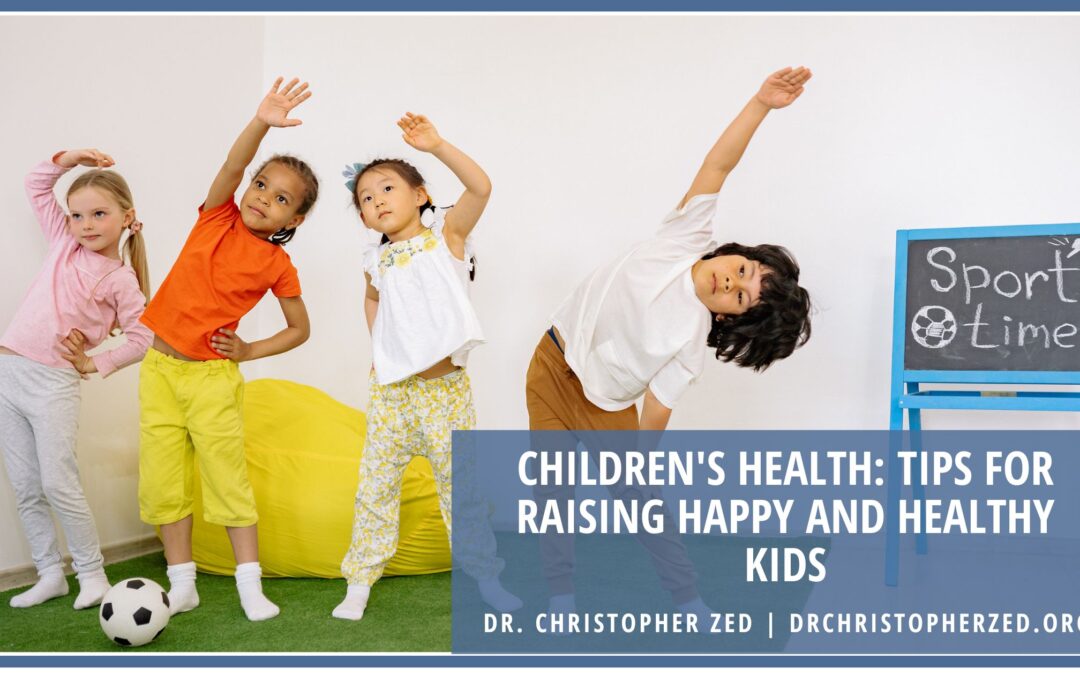As parents, guardians, or caregivers, one of our most significant responsibilities is ensuring the health and happiness of our children. Raising happy and healthy kids involves a combination of nutrition, physical activity, emotional well-being, and good hygiene practices.
Nutritious Diet:
Good nutrition is the foundation of a child’s overall health and well-being. Ensure your child’s diet includes a variety of foods from all food groups. Focus on:
- Fruits and vegetables: Encourage a colorful plate with various fruits and veggies. They are rich in vitamins, minerals, and fiber, supporting growth and overall health.
- Whole grains: Opt for whole-grain bread, rice, and pasta, which provide essential nutrients and fiber.
- Lean proteins: Include lean protein sources like poultry, fish, beans, and legumes. Protein is essential for growth and muscle development.
- Dairy: Provide low-fat or fat-free dairy products, such as milk, yogurt, and cheese, for calcium and bone health.
- Limit sugary and processed foods: Minimize the consumption of sugary snacks, sodas, and processed foods. These items can lead to weight gain and other health issues.
Hydration:
Proper hydration is crucial for children’s health. Encourage your kids to drink water regularly, especially during physical activities. Limit sugary drinks like soda and fruit juices, which can contribute to tooth decay and excess calorie intake.
Regular Physical Activity:
Physical activity is essential for your child’s development and overall health. Encourage at least one hour of physical activity each day. Activities such as playing outside, sports, dancing, or simply going for a family walk are great options to keep kids active and happy.
Sufficient Sleep:
Adequate sleep is crucial for children’s health and well-being. The amount of sleep required varies by age, but on average, school-aged children need 9-11 hours of sleep per night. Create a bedtime routine that helps your child relax and establish a consistent sleep schedule.
Emotional Well-Being:
Children’s emotional well-being is just as important as their physical health. Pay attention to their emotional needs and support them in developing positive coping mechanisms. Encourage open communication and active listening. Discuss their feelings, fears, and concerns, and provide a safe and nurturing environment for them to express themselves.
Limit Screen Time:
Excessive screen time can negatively impact a child’s physical and mental health. Set reasonable limits on screen time, including TV, video games, and computers. Ensure that screen time is balanced with outdoor play, reading, and family interactions.
Good Hygiene:
Teaching good hygiene practices is essential for children’s health and well-being. Encourage regular handwashing to prevent the spread of germs. Teach proper dental care, such as brushing and flossing, and ensure regular dental check-ups.
Routine Health Check-ups:
Regular check-ups with a pediatrician are vital to monitor your child’s growth and development and detect and address any health issues early on. Immunizations and vaccinations are also crucial to protect your child from preventable diseases.
Positive Role Modeling:
Children learn by example, so be a positive role model for healthy habits. Demonstrate good nutrition, physical activity, and emotional well-being in your own life; your child is more likely to follow suit.
Encourage Independence:
Children should be encouraged to make choices and decisions about their health and well-being as they grow. Teach them to make healthy choices and understand the consequences of their actions. This fosters independence and responsibility.
Raising happy and healthy children is a multifaceted task that requires attention to various aspects of their well-being. By focusing on nutrition, physical activity, emotional health, and good hygiene practices, parents and caregivers can create a solid foundation for their child’s growth and development. Remember that every child is unique, and it’s essential to tailor your approach to their individual needs and preferences. You can help your children thrive and lead happy, healthy lives with love, guidance, and a nurturing environment.

